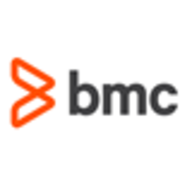


BMC Helix Cloud Security and Microsoft Defender for Cloud compete in cloud security, with BMC offering affordability and support and Microsoft providing enhanced features and robustness. Microsoft Defender for Cloud has the upper hand due to its comprehensive features, smooth Azure integration, and robust security capabilities.
Features: BMC Helix Cloud Security offers automated compliance, intuitive threat detection, and risk management for multi-cloud environments. Microsoft Defender for Cloud includes native threat protection, deep insights into hybrid workloads, and a unified portal for threat intelligence and automation.
Room for Improvement: BMC could improve by expanding its Azure integration, enhancing user interface consistency, and offering more real-time threat intelligence. Microsoft Defender could refine its pricing models, simplify setup for non-Microsoft ecosystems, and offer more flexibility in policy configurations.
Ease of Deployment and Customer Service: BMC Helix provides an agile deployment process and proactive customer service for multi-cloud setups. Microsoft Defender seamlessly integrates within Azure ecosystems, leveraging existing infrastructure with accessible support.
Pricing and ROI: BMC Helix offers competitive pricing for budget-conscious clients, ensuring good ROI without overspending. Microsoft Defender, despite higher initial costs, delivers strong ROI through expansive features for businesses using Microsoft Azure.



SentinelOne Singularity Cloud Security protects cloud workloads, offering advanced threat detection and automated response. It integrates seamlessly with cloud environments and secures containerized applications and virtual machines against vulnerabilities.
SentinelOne Singularity Cloud Security is renowned for its efficiency in mitigating threats in real-time. The platform integrates effortlessly with existing cloud environments, ensuring robust cloud security management with minimal manual intervention. Securing containerized applications and virtual machines, it excels in threat intelligence and endpoint protection. However, improvements are needed in performance during high workload periods, and more integrations with third-party tools and better documentation would be beneficial. Users often find the installation process complex, support response times slow, and the dashboard's navigation unintuitive.
What are the key features of SentinelOne Singularity Cloud Security?In specific industries, SentinelOne Singularity Cloud Security is implemented to safeguard critical data and infrastructure. Organizations in finance, healthcare, and technology depend on its real-time threat detection and automated response to protect sensitive information. Its ability to secure containerized applications and virtual machines is particularly valuable in dynamic environments where rapid scaling is necessary.
BMC Helix Cloud Security is a SaaS tool designed to help organizations reduce compliance and security lapses resulting from next-gen container and cloud technologies. The solution offers a fully transparent, user-friendly view of all compliance data gathered throughout container resources, cloud, and data centers. BMC Helix Cloud Security can be used to insert compliance inquiries precisely in DevOps workflows for immediate assessment in relation to critical “go, no-go” conclusions throughout the entire workflow.
BMC Helix Cloud Security offers enterprise organizations a unique compliance solution with robust functionalities to concentrate on numerous use processes that may interfere with digital transfigurations, such as:
BMC Helix Cloud Security is SaaS, which makes it a very flexible solution. It is able to integrate seamlessly with many of today’s enterprises’ demands. BMC Helix Cloud Security can easily perform as a policy-as-code (YAML) based protocol language, open RESTful APIs, or by seamlessly compiling extensible data connectors.
Many of today's enterprise organizations must comply with numerous policies and regulations to maintain effective operations. BMC Helix Cloud Security ensures an enterprise organization is able to satisfy regulatory standards such as Sarbanes-Oxley (SOX) Act, Defense Information System Agency (DISA), or any other stringent government or internal organizational compliance standards. The solution has a comprehensive compliance policy that utilizes mode-two capabilities and will ensure that an enterprise organization will greatly minimize or even negate the threat of ransomware and data breaches throughout its network.
BMC Helix Cloud Security will also see that container and container hosts are configured correctly and will then regularly audit to ensure compliance at the three important levels of compliance - images, daemon configuration, and host configuration.
BMC Helix Cloud Security is designed to identify vulnerabilities by dissecting and thoroughly investigating compliance data for container and cloud resources and delivering the outcomes through a friendly, easy-to-understand dashboard. The solution can also provide support for unique or custom sources, provided that data is in a JavaScript Object Notation (JSON) format.
BMC Helix Cloud security is also able to help discover and minimize vulnerabilities created by new services, objects, and resources instituted by containers and public clouds. These can sometimes be forgotten, creating a tremendous risk to an organization. BMC Helix Cloud Security will ensure these new services will be carefully and continually monitored to ensure industry and government standards and regulations are not being compromised. The solution is continually dissecting data and then will deliver outcomes in a dynamic, easy-to-understand dashboard.
BMC Helix Cloud Security offers a user-friendly, robust, complete compliance strategy to ensure organizations maintain the highest levels of productivity and profitability while negating the risk of any type of compliance vulnerabilities.
Microsoft Defender for Cloud is a comprehensive security solution that provides advanced threat protection for cloud workloads. It offers real-time visibility into the security posture of cloud environments, enabling organizations to quickly identify and respond to potential threats. With its advanced machine learning capabilities, Microsoft Defender for Cloud can detect and block sophisticated attacks, including zero-day exploits and fileless malware.
The solution also provides automated remediation capabilities, allowing security teams to quickly and easily respond to security incidents. With Microsoft Defender for Cloud, organizations can ensure the security and compliance of their cloud workloads, while reducing the burden on their security teams.
We monitor all Cloud Workload Protection Platforms (CWPP) reviews to prevent fraudulent reviews and keep review quality high. We do not post reviews by company employees or direct competitors. We validate each review for authenticity via cross-reference with LinkedIn, and personal follow-up with the reviewer when necessary.